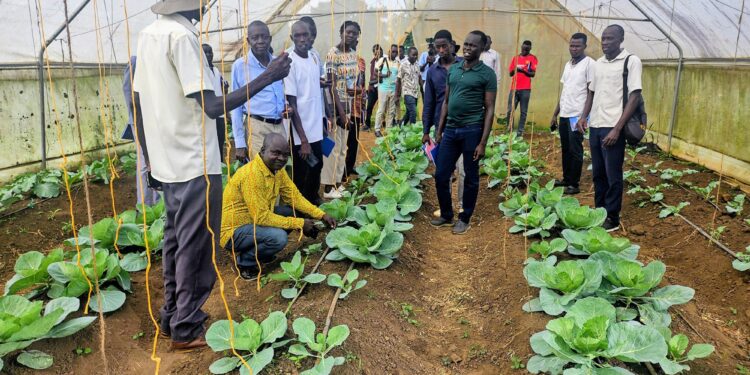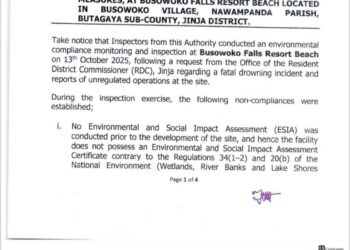The National Agricultural Research Organisation (NARO) has launched a countrywide training programme to strengthen journalists’ skills in reporting on agricultural research, aiming to bridge the gap between science and the public.
The initiative began on Wednesday at Gracious Palace Hotel in Lira City, targeting journalists from the Lango sub-region. The training seeks to equip media professionals with accurate, up-to-date information to enhance the quality and impact of agricultural reporting.
“Research is the backbone of Uganda’s agriculture, with our locally developed crop varieties adopted across the region,” said Frank Mugabi, NARO’s Head of Communications. He stressed the need for journalists to access reliable data to ensure accurate reporting, noting, “As NARO, we prioritize accuracy because our technologies serve a sector that employs most Ugandans.”
The training introduced participants to NARO’s governance, its network of research institutes, and key research outputs, including the groundbreaking anti-tick vaccine, improved crop varieties, and resilient livestock breeds designed to tackle climate change, pests, and diseases. Journalists also toured the Ngetta Zonal Agricultural Research and Development Institute (Ngetta ZARDI), one of NARO’s nine ZARDIs, which conducts adaptive research for Uganda’s agro-ecological zones.Additionally, the training highlighted the work of NARO’s seven National Agricultural Research Institutes (NARIs), focusing on strategic areas like crops, livestock, fisheries, forestry, coffee, cocoa, and laboratory services.
By connecting journalists with scientists and field research, NARO aims to promote evidence-based reporting that informs policy, drives farmer adoption of innovations, and supports agricultural transformation. Agriculture, which employs over 70% of Ugandans and significantly contributes to GDP, faces challenges like low productivity and climate shocks. Research-driven solutions are vital, but their success depends on effective communication.
“We want science to move from labs and reports to the public through compelling storytelling,” Mugabi said. “Journalists are critical partners in transforming agriculture.”The training aligns with Uganda’s agricultural transformation goals under the Parish Development Model (PDM), Agro-Industrialisation Strategy, and global frameworks like the African Union’s Agenda 2063 and the UN Sustainable Development Goals (SDGs).Journalists hailed the initiative.
“The training was eye-opening. I learned about the anti-tick vaccine and will share this knowledge with our audience,” said Auma Winnie, a reporter with Unity FM in Lira. Atim Nancy of Q FM added, “This deepened my understanding of agricultural research, especially the vaccine’s role in improving livestock health and farmer livelihoods. It also showed me how to align reporting with sustainable development goals.”
Patrick Okino, chairperson of the Lango United Journalists Association, described the training as a “milestone” and the start of a strong partnership between NARO and the media in Lango. “This shows NARO values the media’s role in sharing research and innovation,” he said.NARO plans to roll out similar trainings nationwide to build a network of media champions who can drive positive change in agriculture through informed reporting.
Do you have a story in your community or an opinion to share with us: Email us at editorial@watchdoguganda.com














